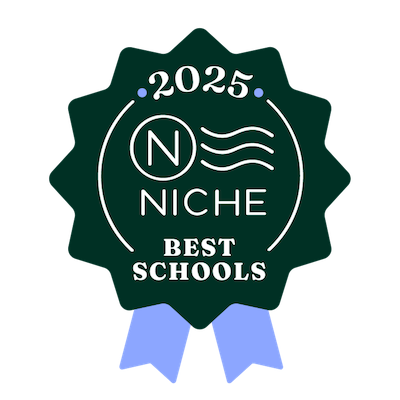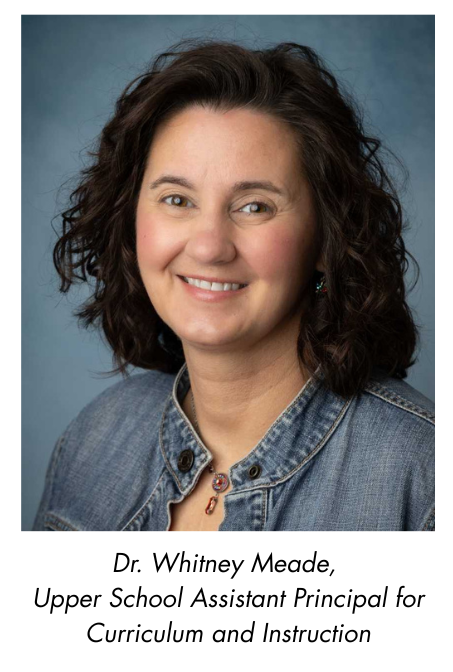
One of the pillars of Madison Academy’s mission statement is to help students grow in wisdom and knowledge. Each discipline aligns to create an authentic experience that reflects higher achievement through a holistic approach. We work to meet students' needs through academics, arts, athletics, and spirituality.
The academic focus is active engagement in every lesson, every day. Students schedule eight courses per year on a modified block schedule. The modified block allows for 75-minute classes four days per week with one day of 55-minute classes. This extended time facilitates a more profound understanding through discussions, collaborative practice, and investigative inquiry.
Additionally, students can choose from various courses and diploma pathways within the MA’s course structure. Madison Academy has unveiled a rare opportunity with the Pathways of Distinction. This opportunity, along with numerous electives, advanced placement courses, dual credit, or dual enrollment, coupled with Biblical worldview shaping in all content areas, imparts skills and fosters spiritual growth that prepares students to succeed and serve within their family, community, and the Kingdom of God.
Pathways of Distinction
The pathways of distinction are designed for students who desire to pursue a specific career path. This program requires a humble, dedicated approach to learning to not only build a foundation of knowledge but also cultivate the work ethic to be successful in their future career. Those who pursue this path will be molded into diligent, inspired adults who approach the future with amazement and wonder at the ever-evolving technologies tied to their future. The students who graduate from a pathway will be inspired, lifelong learners who are resilient due to the rigorous challenges they have mastered along their journey. Eden Engineering and Mustang Medical are the current pathways of distinction.
Curriculum
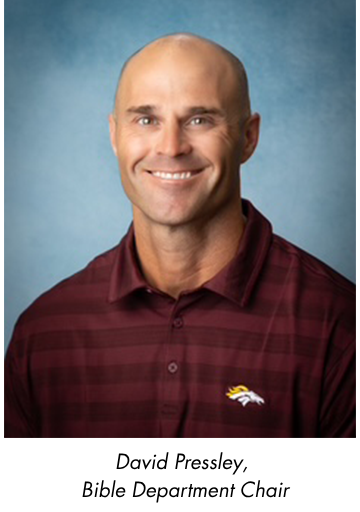
It is the mission of Madison Academy to teach every subject from a Christ-centered worldview each day. We also require each student to be enrolled in a Bible class every year from seventh through twelfth grade. The goal of each class is to provide an academic and spiritual formation component. We would love to see our students grow in knowledge of Biblical content as well as an understanding of how to see the Word come to life on a daily basis. We believe the Word of God is living and active and each student can grow in faith and understanding through studying the Word in an academic setting.
We strive to balance our Bible curriculum by having our middle school students work through the Bible fully so we can develop a deeper understanding through the ninth to twelfth grade years. While trying to make sure all students are exposed to the entire Bible and Gospel story, we also acknowledge and teach from the standpoint that students are typically asking very specific internal questions at different points in their lives. We want to take our Bible content and meet them where they are at on their journey to provide a strong foundation for a life in Christ.
.png)
The English Department provides students with the critical thinking, reading, and writing skills necessary for success as adults.
All students, from seventh through twelfth grade, are introduced to a variety of works, both literary and nonfictional, which allow them to practice the skills necessary to discern purpose, tone, and meaning while effectively communicating these ideas through writing and speaking. Spelling, vocabulary, and grammar will be included in the writing portion of the classes, and classical literature, along with more contemporary works, will be used to teach critical thinking and analysis.
Honors, Dual Enrollment, and AP classes are offered at the high school level, and all students are exposed to and interact with universal themes through a Christian worldview that will help them understand their place and purpose in life.
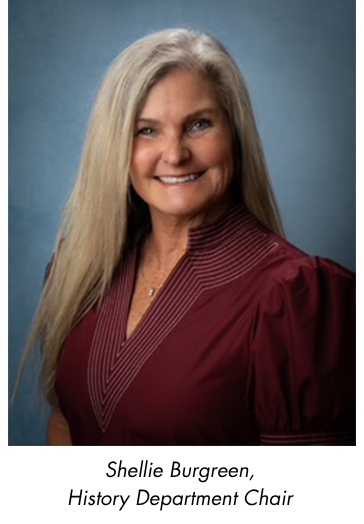
The History Department provides students, grades 7–12, opportunities to become literate, analytical thinkers capable of making informed decisions about the world and its people while also preparing them to participate responsibly in society at local, state, national, and international levels.
Through studies of geography, civilizations, and government, students will learn how history provides us with the opportunity to understand the world around us and how we have reached this point in time. By gaining a deeper understanding of the past, students will be better equipped to fulfill their role as informed, responsible citizens as adults. Honors/Dual Enrollment Courses are currently offered for 10th and 11th grades, including Honors World History 9. New advanced offerings are planned for the next couple of years.
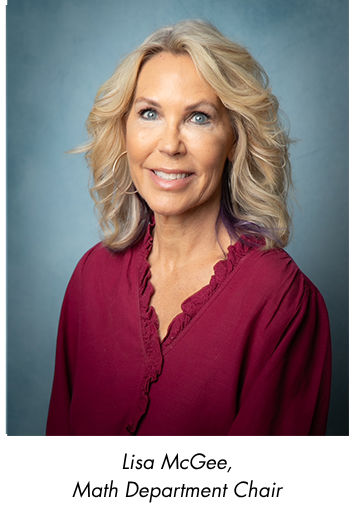
The Math Department strives to impart critical thinking skills in a mathematical context. Mathematics has numerous applications in the real world, and critical thinking is essential for success as a member of society and as a follower of Christ. At its core, math is a window to view the world as God has created it. The order and reasoning of mathematics come from our creator.
Middle school students will focus on a variety of basic math skills necessary for the more challenging high school courses. High school math students will continue to use and develop the basic math skills learned in previous classes while building new skills associated with algebra, geometry, and trigonometry. These courses will be the primary focus of standardized testing, providing a critical foundation for success. Students may choose to take dual enrollment, honors, or advanced placement courses in precalculus, calculus, college algebra, and statistics. This enables students to develop college-level learning skills and earn college credit before graduating from high school.
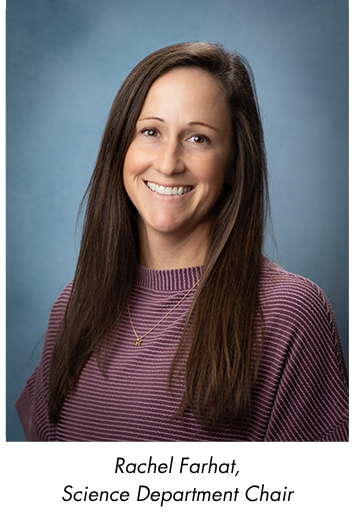
The Science Department is dedicated to developing the critical thinking skills of each student. Our curriculum and instructional methods aim to prepare students for college-level study and to develop scientific literacy, so that students can form sound opinions and take effective action.
In our science classrooms, students participate in discussions, labs, research, reading, data collection and calculations, with interpretive writing, online activities, hands-on classroom and field activities, and problem-solving: both individually, and in small and large group settings. Students learn from a variety of methods, such as discussion, project, and problem-based learning, scientific inquiry, and student-centered teaching using laboratory experiences, field trips, scientific collaborations, and lectures/labs.


